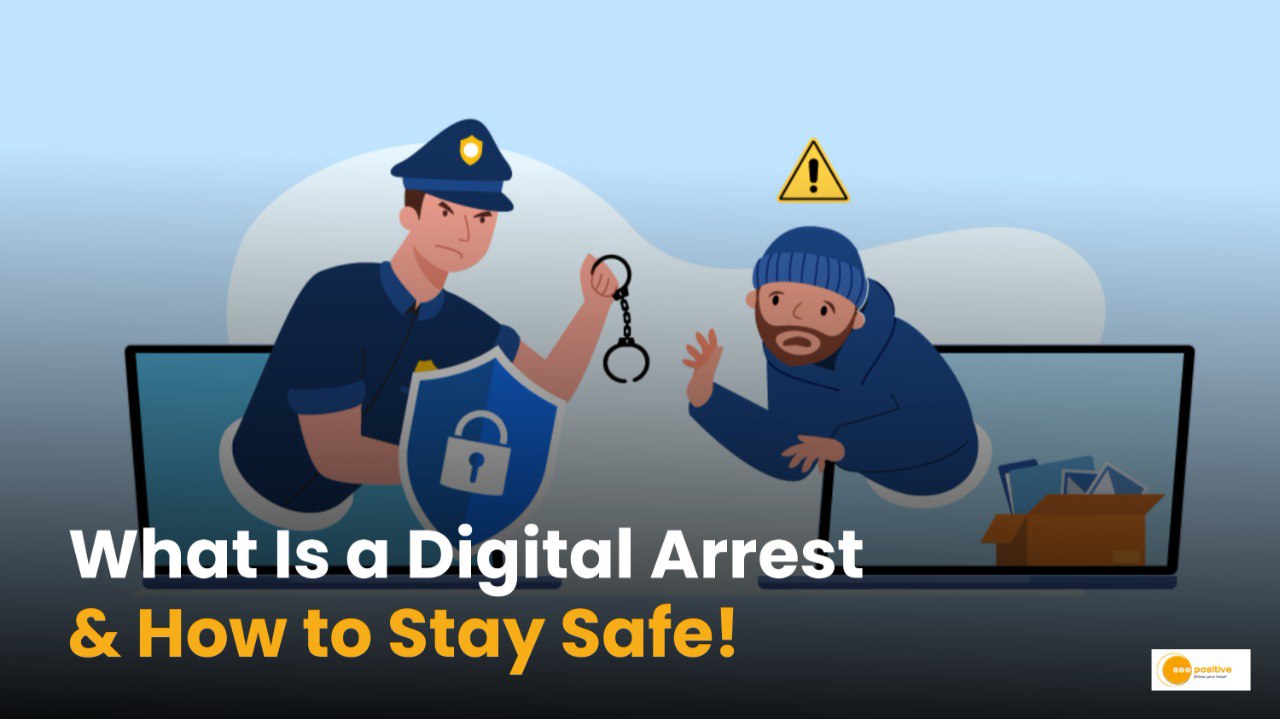Digital Arrest Scam: As the world becomes more connected, scammers have found new ways to trick people. One of the latest tricks is the Digital Arrest Scam, where criminals pretend to be law enforcement and scare people into paying money to avoid getting arrested. Here’s how it works and how you can protect yourself.
What is the Digital Arrest Scam?
In this scam, someone is pretending to be a police officer or government official contacts you through a phone call, email, or text. They claim you’ve committed a serious crime, like not paying taxes or being involved in fraud. They threaten that an arrest warrant has been issued, and unless you pay up quickly, you’ll be arrested. Payments are usually requested through untraceable methods like gift cards or crypto currencies.
Common tactics used in this scam
- Fear and urgency- The scammer pushes you to act fast, saying you’ll be arrested immediately if you don’t pay.
- Fake identities- They pretend to be from the police, government, or legal offices, often using fake ID numbers or documents.
- Unusual payment methods- They ask for payment through gift cards, wire transfers, or crypto currencies methods that are hard to trace.
How to recognize Digital Arrest?
- Unsolicited contact- Be cautious if you get unexpected calls, emails, or messages claiming you’re in legal trouble.
- Pressure to act quickly- Scammers push for quick action, threatening arrest if you don’t comply immediately.
- Strange payment requests- No real law enforcement agency will ask you to pay through gift cards, crypto currency, or wire transfers.
- Lack of official paperwork- Legitimate agencies provide verifiable documents. If you can’t verify the claim, it’s likely a scam.
- Threatening behavior- Scammers often use aggressive language to scare you into paying.
How to Protect Yourself?
- Don’t engage- If you think it’s a scam, don’t respond. Hang up the phone, ignore the message, and don’t give out any personal information.
- Verify the claim- If you’re unsure, contact the police or agency directly using their official phone numbers, not the ones provided by the scammer.
- Report the scam- Contact your local police or report the scam to the Federal Trade Commission (FTC) or a similar agency in your country.
- Keep personal info private- Be cautious about sharing sensitive information online or over the phone, especially with unknown contacts.
- Stay informed- Follow news and updates about the latest scams to protect yourself from new tricks.
- Share with others- Let your family and friends know about this scam, especially those who may be more vulnerable, like older relatives.
How to Proceed If You’ve Been Converted
If you believe you have been duped by this scam,
- Contact your bank- If you’ve sent money, get in touch with your bank to see if they can stop or reverse the payment.
- Report it- File a report with your local police and any relevant consumer protection agency.
- Keep an eye on your accounts- Look out for any unusual activity with your credit and bank accounts.
Positive takeaway
The Digital Arrest Scam uses fear and urgency to trick people, but by staying calm and informed, you can avoid becoming a victim. Remember, real law enforcement won’t ask for payments through gift cards or pressure you to act immediately. Protect yourself by staying alert and sharing this knowledge with others.


